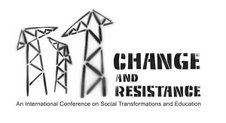Tomasz Tabako, Ph.D., Professor of Rhetoric and Communication Studies, University of Iowa
MAIN THESES: The paper proposes a troppological approach to the rhetoric of popular protest, including the rhetoric of Poland’s Solidarity movement as it developed in the 1980s. More specifically, the paper (1) examines the role and function of tropes (such as metaphor and irony, among others) in oppositional discourse. (2) It presents a framework for the analysis of social movements, exploring the manner in which the rhetoric of a mass social movement tends to develop over time—in a tropologically patterned way. (3) It discusses the example of Poland’s Solidarity to show how the action of tropes is made manifest in the movement’s rhetorical biography. The paper’s more general claim is as follows: In this age of accelerated globalization on the one hand and the emergence of fundamentalisms and anti-globalization activism on the other, it is crucially important to have a better understanding of how the engines of social change, namely, social movements, operate; the tropological approach offers an informative insight into this link between social change and movement discourse.
ABSTRACT: Social movements, such as Poland’s Solidarity, are for the critic what elementary particles running through the accelerator are for the physicist: under the critic’s eye, the compressed dynamics of movements are studied to reveal the anatomy of change itself. With this in mind, the paper offers a tropological approach to the theme of change and resistance in general and to the rhetoric of popular protest (as made manifest in the rhetoric of Poland’s Solidarity movement as it developed in the 1980s) in particular. This approach stems from dissatisfaction with the existing frameworks for social movement analysis as presently available in political science, sociology, and communication studies, among other disciplines. Most social movement scholars have in large measure ignored a relationship between movements’ discursive (rhetorical) activities and social change. By viewing movements primarily as acts of the imagination, the paper locates much of the energy and potential for social change in movements’ rhetorical agency. Drawing on Vico’s concept of tropes (with metaphor and other tropes understood not as techniques of ornamentation but as modes of thinking) and Laclau’s theory of articulation (a meeting place of post-Marxism, psychoanalysis à la Jacques Lacan and deconstruction à la Jacques Derrida), the paper calls for a new branch of analysis--a tropology of social movements, one that identifies and describes some patterns of the rhetoric of mass protest as made manifest diachronically. Further, it investigates how the rhetoric of a movement brings together various, often unrelated social demands into a temporary unity, thus constructing a populist identity—“us, the people,” and while doing so, translating the discursive into the social and the institutional, thereby generating change. The paper suggests that a movement’s “formation-fragmentation” biography can be read as a chronicle of the movement of tropes, which discursively “edit” the movement’s accounts and constructions of social reality in a quasi-sequential way, from metaphor (inventing a new perspective) through synecdoche and metonymy (totalizing and universalizing political claims via the logic of “chain equivalence”) to irony (revealing gaps, contradictions, and a “lack” in the movement’s system of social knowledge). Inasmuch as this progression (if uninterrupted) falls into the scheme of a Weber-like/ideal model of movement evolution, the language games a populist movement is engaged in keep the movement’s political struggle open to a variety of discursive outcomes, including the collapse of the movement during any of its tropological stages. Consequently, in a poststructuralist fashion, the paper challenges a number of deterministic and essentialist assumptions about social change and the role social movements play in it.
In its application part, the paper explores the role of metaphor and other tropes in developing oppositional politics as embodied by Poland’s Solidarity movement. First, drawing on the work of George Lakoff and others, the paper discusses the power of conceptual metaphor in constituting political campaigns and catalyzing social change as paradigmatically embedded in Poland’s Committee for the Defense of Workers of the late 1970s. Developed with the help of “public poets,” the committee’s master metaphors helped to re-imagined reality by launching alternative vocabulary. They put the concepts of ‘freedom,’ ‘nation,’ and ‘the past in the context of the present’ in a new light and reinvigorated culturally significant myths, thereby neutralizing the newspeak of Poland’s authoritarian regime and undermining its claims to legitimacy. As an example, the metaphor of “freedom is your own genuine speech” facilitated the emergence of alternative and independent publishing circulation and the establishment of a free speech community within an authoritarian environment. Taken together, this and other metaphoric frames facilitated a spiritual takeover, a “charismatic coup”; they transformed the opposition into a legitimate challenger by effectively addressing people’s axiological hunger in a time of crisis. The remaining two sections of the paper will discuss the function of the rhetorical tropes of metonymy and synecdoche in the formation of the Solidarity movement in the early 1980s, as well as the operations of discursive irony in the process of Solidarity’s fragmentation in the late 1980s.
Subscribe to:
Post Comments (Atom)

No comments:
Post a Comment